

"You've got to have the right heart and the right spirit," says Toleafoa Leatuao Larry Tupa’i-Lavea.
Photo/ Humans of South Auckland
Sāmoan business mogul’s journey from humble beginnings
An ordained minister attributes his success in business to his Sāmoan values and the work ethic instilled in him by his parents.

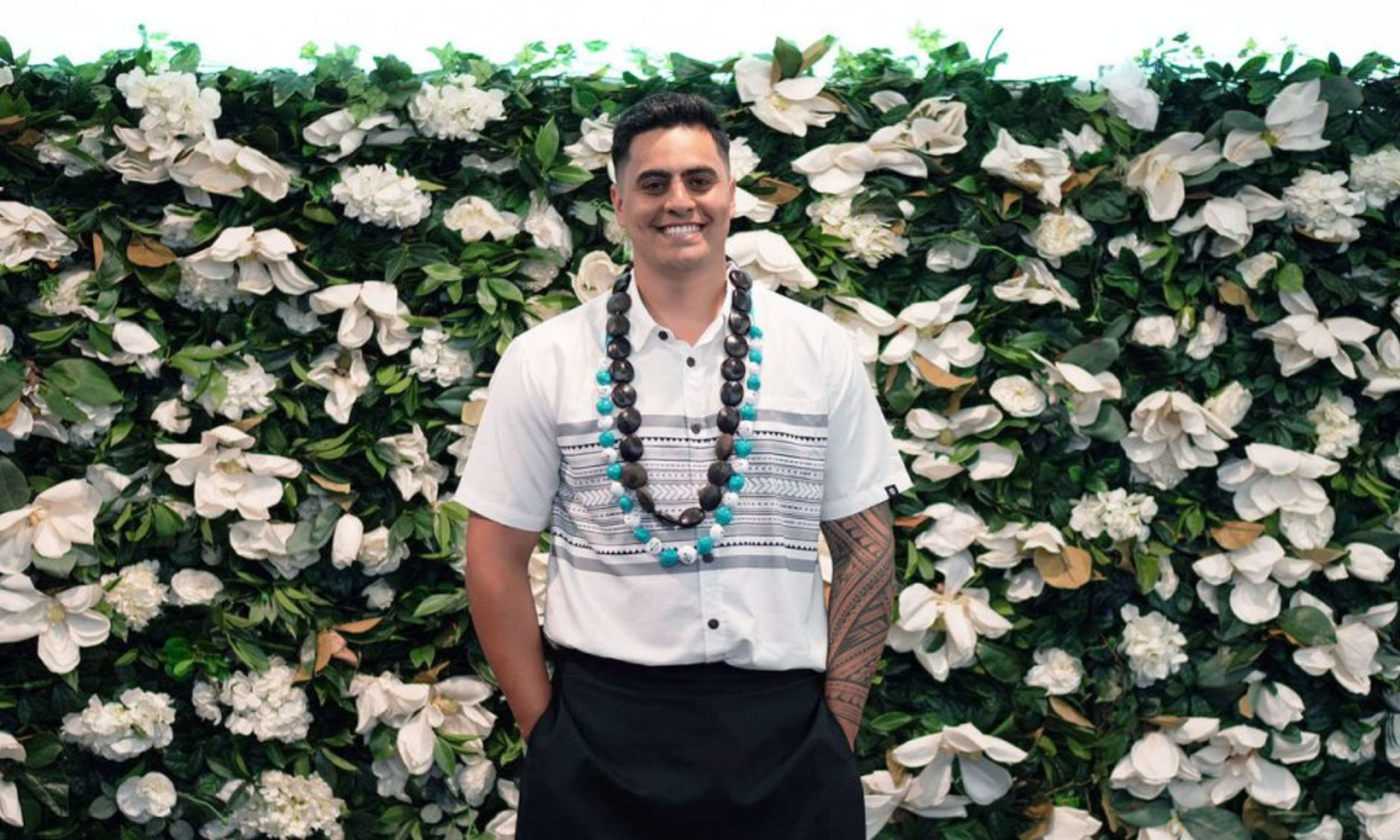
Excellence and possibility: Meet the new face of Pacific medicine in Aotearoa

Top 10 Pacific Island songs you need on your summer playlist in 2025


Our generosity is our strength but we must spend wisely this Christmas - expert

Excellence and possibility: Meet the new face of Pacific medicine in Aotearoa

Top 10 Pacific Island songs you need on your summer playlist in 2025

Despite becoming the only Sāmoan in New Zealand to own a string of petrol stations, Toleafoa Leatuao Larry Tupa’i-Lavea says life as a theological academic could have been his future had things panned out differently.
But instead of running churches, the ordained Anglican minister has been able to create a different kind of community through the corporate world of retail business.
Born and raised in Sāmoa, Toleafoa and his family migrated to Hamilton, New Zealand, in 1977 when he was six years old.
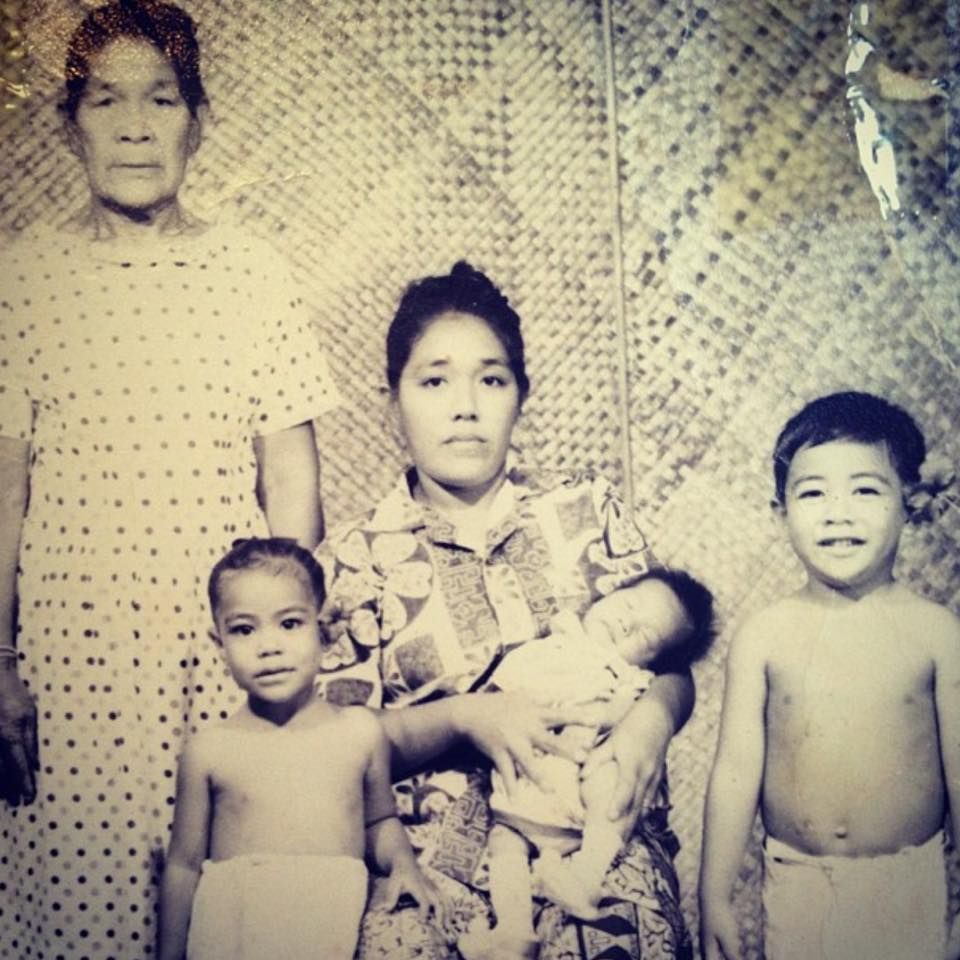
Young Leatuao (standing right) with his mother Selepa, grandmother Matauaina Lavea Feterika, and his sisters Vaovai and baby Seve Upu. Photo/E-Tangata
Toleafoa had a knack for hustling at a young age, starting his first job at a dairy when he was just nine.
At 12, Toleafoa left the dairy due to a change in ownership and worked at McDonald’s.
Toleafoa says working at such a young age instilled in him a strong work ethic, but also impacted his schooling.
“I went to school to sleep because I started work at about 3:30 after school. I didn't get home until about three or four in the morning. And then at six o'clock in the morning, Mum would wake us up for lotu, for prayers. Can't miss prayers … full-blown service, four hymns, two Bible readings, and a long prayer.”
In 1998, after working for McDonald’s for 15 years, Toleafoa decided to make a change in his life and study theology.
“I quit McDonald's and went to theological college to prove that I could do a degree in theology. I completed that and then did a diploma in practical theology.”
Toleafoa then moved from the Methodist to Anglican church to highlight that a calling into ministry wasn’t about getting paid.
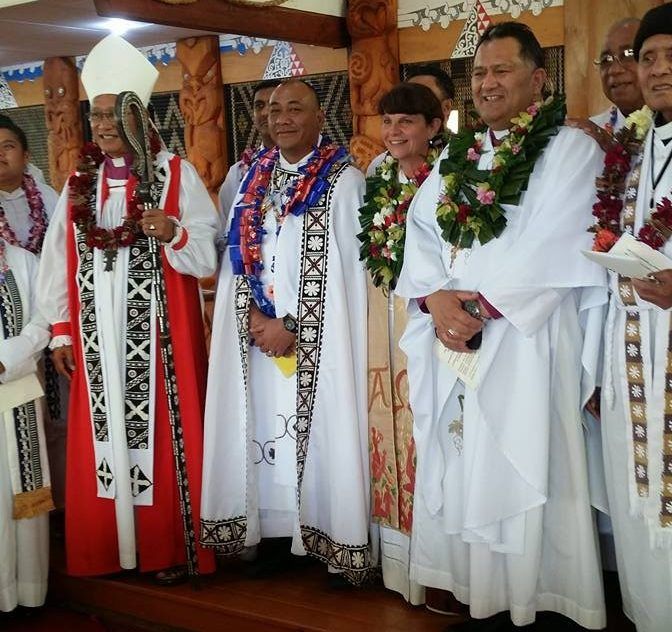
Leatuao (centre) during his commissioning as the Archdeacon for the Diocese of Polynesia in Aotearoa New Zealand in the Anglican Church, at Te Karaiti Te Pou Herenga Waka in September 2015. Photo/E-Tangata
“I wanted to change how our people think about God, not emphasise the value of giving money that they don't have, to the church, in the name of God. So when I left there, I became an Anglican and still am today as a non-stipendiary priest, which means that I need to go find my own job.
“So when I left the Methodist church, I worked a graveyard shift for New Zealand Post until seven in the morning. And then at nine o’clock in the morning, I did a contract with Arthritis New Zealand.
“I finished at three in the afternoon when I saw my children, who were young at the time and then slept for a couple of hours and went back to work and [repeated] the whole cycle.”
But to find a daytime job, Toleafoa went through 167 unsuccessful applications before finally getting a call back for the 168th application.
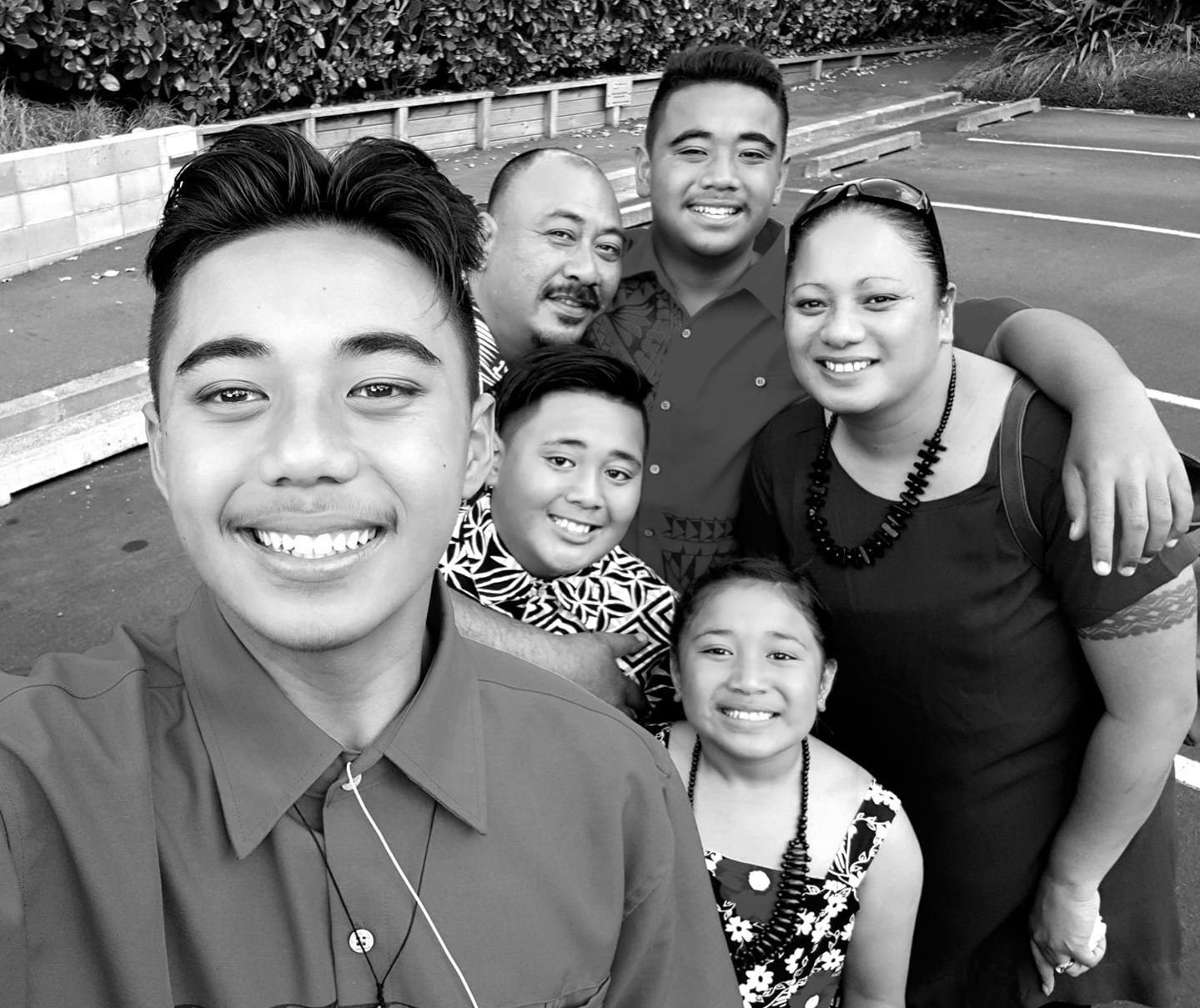
Family selfie: Toleafoa and Helen with their children Phoenix (front), Jahvan (back), Lincoln, and Paige. Photo/E-Tangata
“A palagi man by the name of John Lambert, who owned 13 service stations in West Auckland in 2007, offered me an interview.
“Then two weeks later, [he] rung up and asked if I wanted a job and I said yes. Then that's how I got into the field of retail.
“In December 2007, through John Lambert, he said to me, he's not going to be around forever and I need to get my own business. So the opportunity came up to apply to become a business owner in South Auckland.
“And now my wife and I are the only Sāmoans who are business owners within the Z Energy Network.”
Toleafoa acknowledged it was no easy journey to make it where they are today.
“There are lots of challenges in being an owner of service stations for a corporate company. And first of all, you need to understand how the corporate fuel retail [business] works.
“There's also how your own sense of values about being Samoan and so what is it that you bring into this corporate world.
“For me, it's always trying to showcase the indigenous model of the Sāmoan community and society and how we might operate leadership.”
Aiga Energy is the name of their company, which includes eight service stations, with each functioning like a village, says Toleafoa.
“Everybody that works at that service station is a member of that village council. We run a very Sāmoan model in how we operate our business.”
Toleafoa says the foundation of his success is his parents. Toleafoa’s mum had two dreams for her children. The first was that one would become a minister and her second dream was for her children to become musicians, Toleafoa says.
Toleafoa adds that as the elder brother to Feagaigafou Nainz and Logovi'i Viiz, who form the famous music duo Adeaze, both his mum’s aspirations have been achieved.
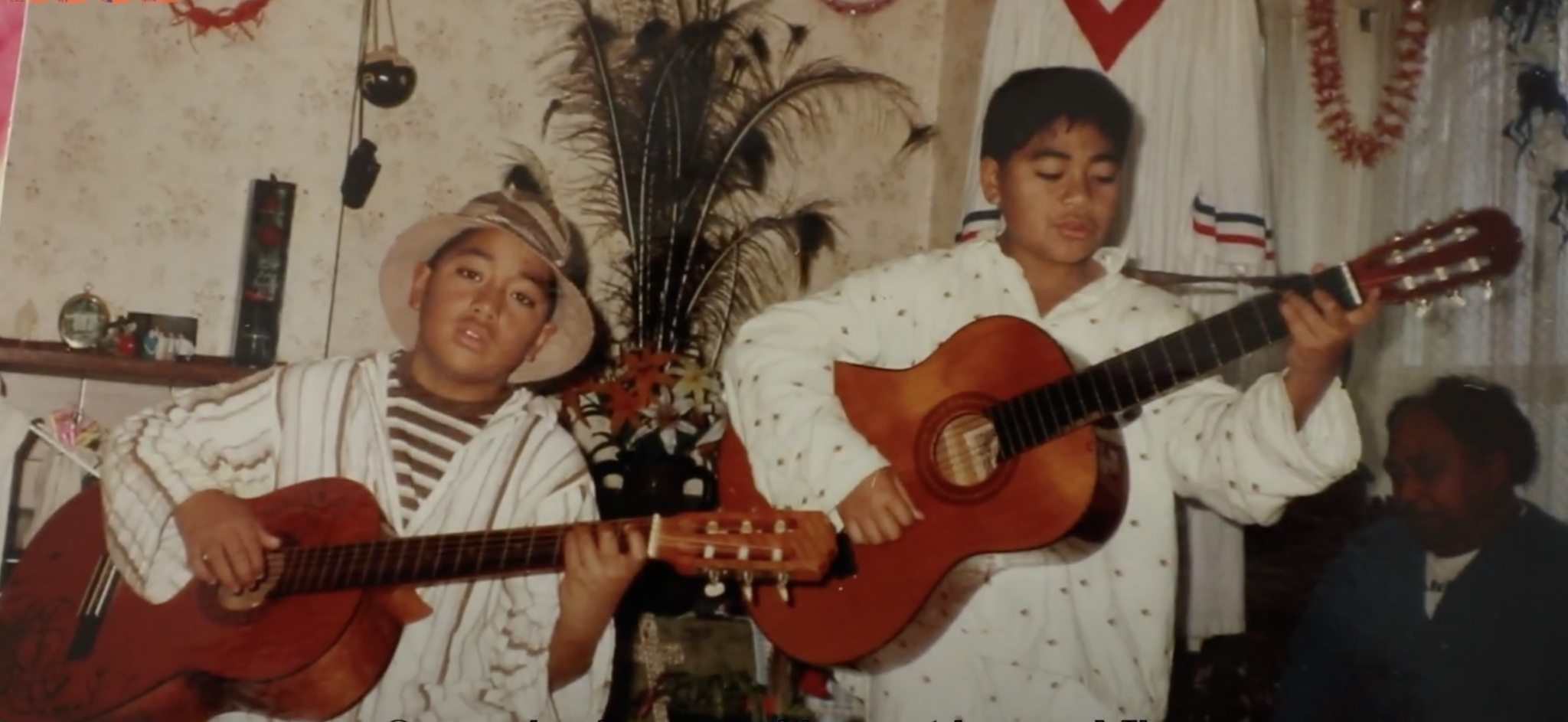
Brothers Logovi’i (left) and Aloali’i Feagaigafou (who went on to become Nainz and Viiz of Adeaze). Dad is on the right and Mum is the conductor. Photo/E-Tangata
He reflected on his upbringing and what it meant for his parents to migrate to New Zealand.
“As we got older, then we took it a step further and said to ourselves, Mum and Dad came here with a dream that we would be educated and have a better future. What would that mean? What would that look like for us? For me, I didn't really get into the business sense.
“I only got into it because it was a need of survival. It was never a future thing that I had for myself. I wanted to stay in education, do a master's, get a doctorate, and kind of be in that world, in the educational world. But that's not how my life panned out.
“My life was that I needed to work to bring the money, and the food for the sake of my family. And as a consequence of that, that's where my calling became.”
As he reflected on his journey to success, Toleafoa also shared more on the Good in the Hood campaign that Z Energy is currently running.
The campaign supports local community groups by distributing a million dollars annually across New Zealand.
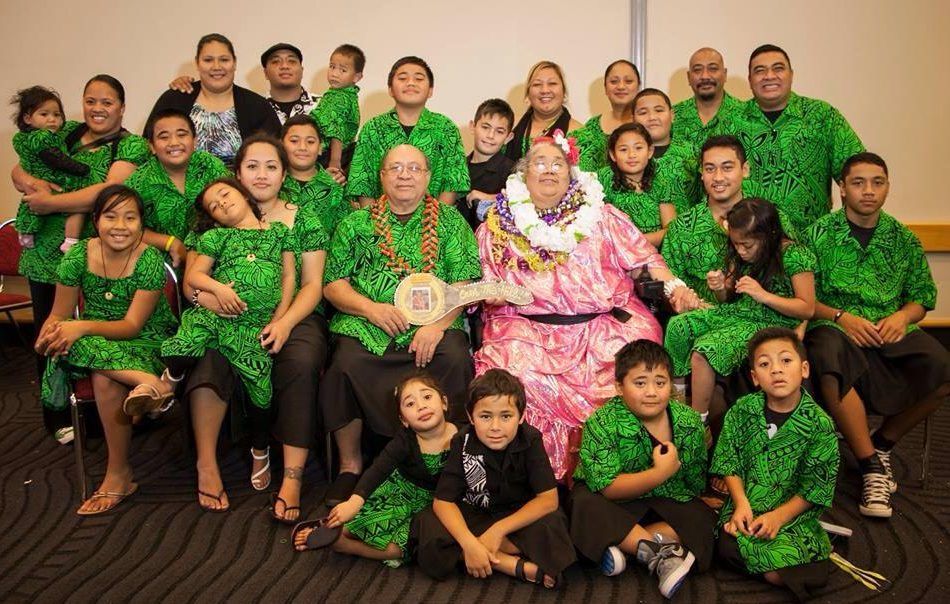
The Tupa’i ‘āiga celebrating Selepa’s 70th birthday in 2015. Photo/E-Tangata
He highlighted his commitment to promoting Pasifika and Māori communities through this initiative and the challenges of balancing Sāmoan values with the corporate world.
It’s now over 10 years since Good in the Hood, the programme itself, and then we business owners then bring that to life.
“Every year, lots of applications come through and in the early stages … the truth was there were no Pasifika or Māori community organisations that applied.
“If they did, it was zero to one percentage, and what we've done over the past ever since we've gotten involved … was I wanted to find our community groups because I know they're out there and I know they do some fantastic work.
“So over the last five years, this has now increased and built to the point where now we have 80 percent of our community groups that we support are Māori and Pasifika in my own area around my eight service stations."
The campaign runs from 26 August to 22 September, inviting the public to support their community groups at participating service stations.
And what’s Toleafoa’s word of advice to Pacific people wanting to follow in his footsteps?
“You've got to have the right attitude. You've got to start with the attitude that says, I can do this and probably do it better. And then you've got to have the right heart and the right spirit. Then if you're interested, go and get some knowledge.
“Go and get some education … if you're interested in business, go do a business certificate or something like that.”
Watch the full interview below.